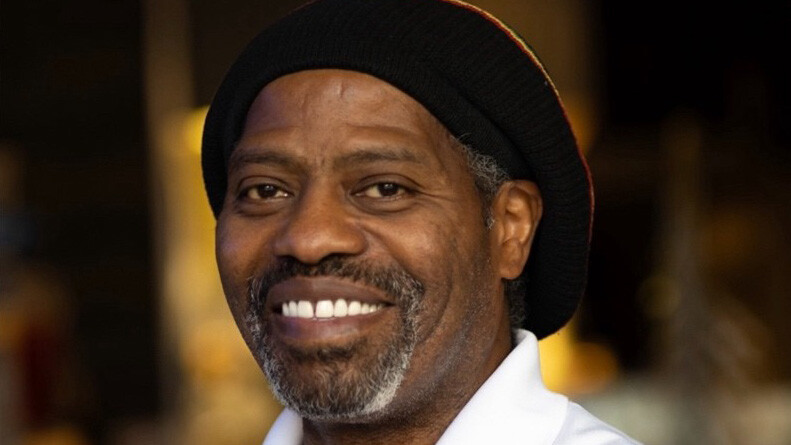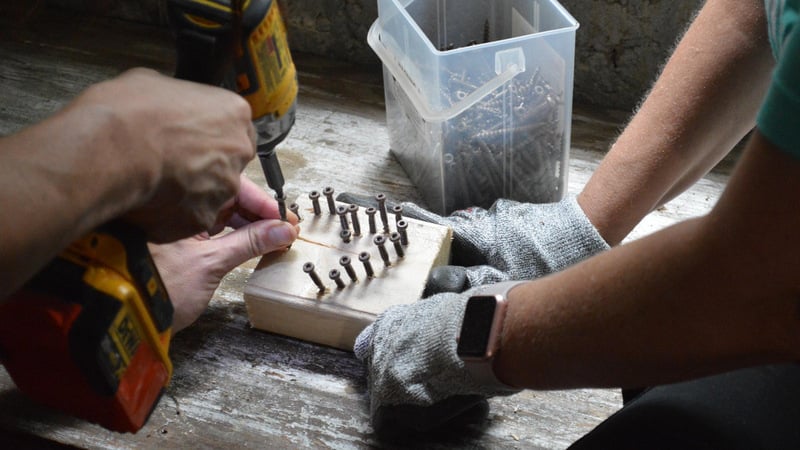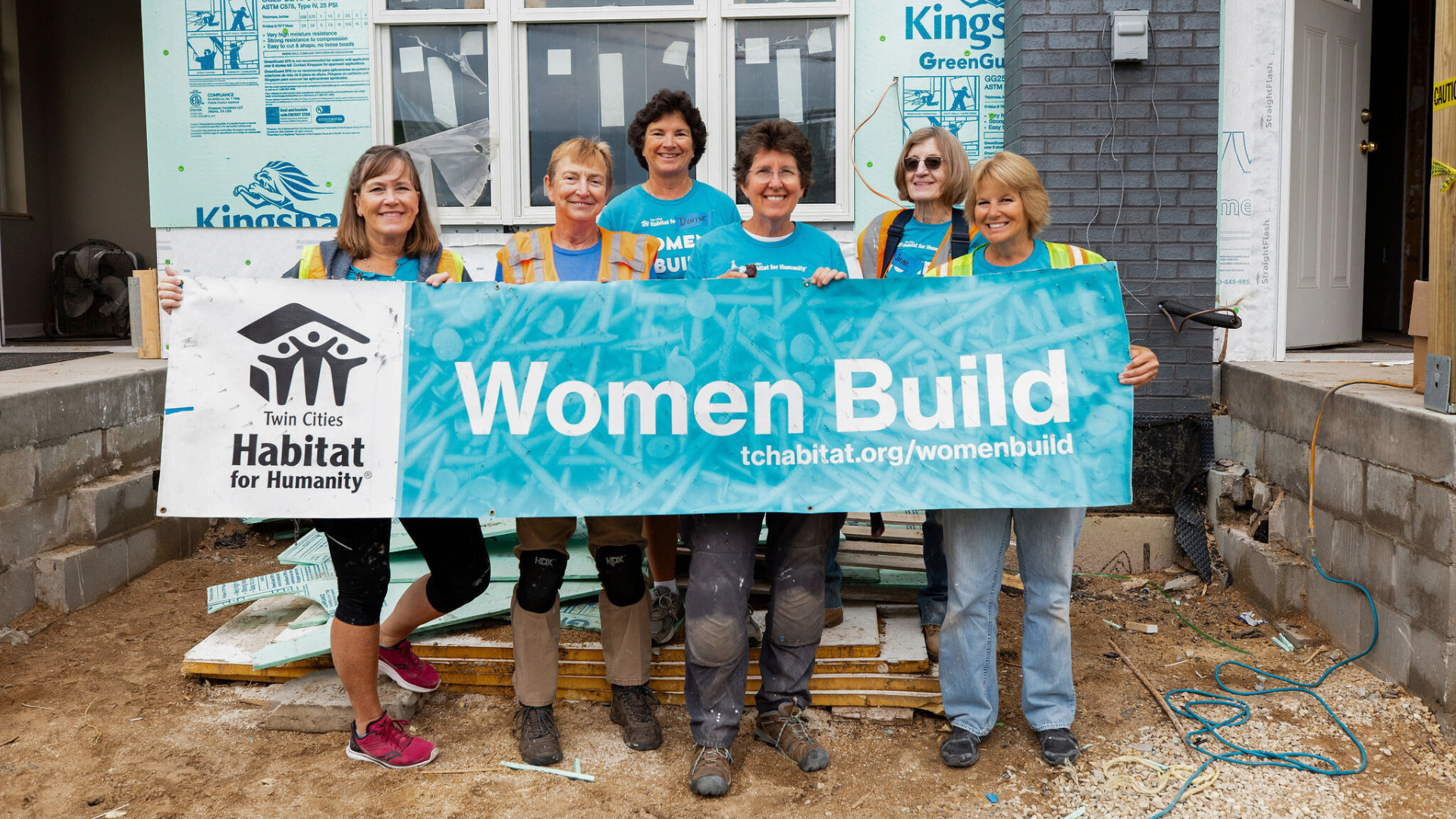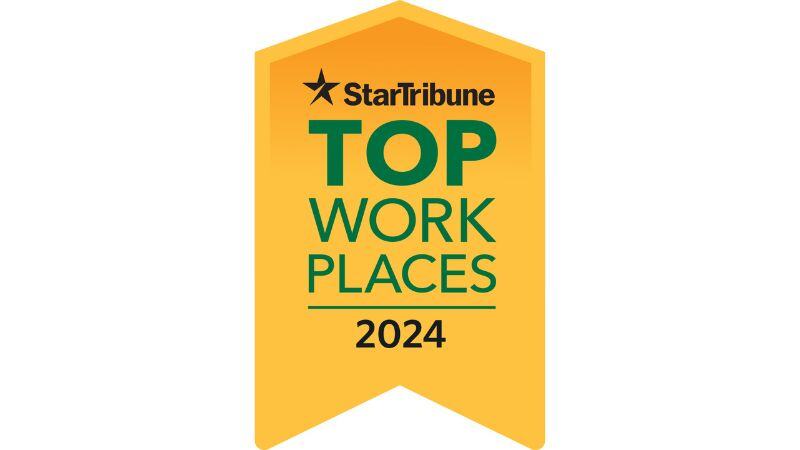5 Great Reasons to Work at Habitat
Guest Blog by Robyn Lodahl, HR Coordinator, and Blake MacKenzie, Communications Specialist It takes everyone to make Twin Cities Habitat for...
7 min read
Aaron Lichtov
:
9:00 AM on December 26, 2024

The concept that grew into Habitat for Humanity was developed in the mid-1960s by a multiracial group of farmers in a Christian intentional community. Our organization’s roots are in working together across race, class, and other lines of difference to bring the transformational power of homeownership to people who might not otherwise have access to this life-changing opportunity. As we work to to elevate the voices of our clients, many of whom are Foundational Black Americans (descendants of the transatlantic slave trade), we also want to elevate stories and traditions from that community.
 In that spirit, Twin Cities Habitat’s DEI Manager Laura Miller sat down with Jeff Williams, Interim Executive Director of the Empowerment Institute at Twin Cities R!SE, to talk about the upcoming Kwanzaa holiday and how it informs his life and work.
In that spirit, Twin Cities Habitat’s DEI Manager Laura Miller sat down with Jeff Williams, Interim Executive Director of the Empowerment Institute at Twin Cities R!SE, to talk about the upcoming Kwanzaa holiday and how it informs his life and work.
Developed by activist Dr. Maulana Karenga during the rise of the Black Power movement in 1966, Kwanzaa is an annual celebration of African American culture. It takes place from December 26 to 31 and culminates in a celebratory feast. The name Kwanzaa derives from a Swahili phrase meaning "first fruits” and is tied to traditional harvest festivals during the December solstice—the beginning of the summer harvest season in the southern hemisphere.
Each day of Kwanzaa celebrates one of the Seven Principles:
Laura Miller [LM]: Part of our work is telling stories about folks who are working with purpose to elevate Foundational Black Americans. I’m very grateful for the partnership that we have with Twin Cities R!SE and for how you all show up for people. We also want to elevate the importance of Kwanzaa in empowering Foundational Black Americans. So can you talk to us about your history with Kwanzaa? I know there’s a real variety in how people engage with it these days.
Jeff Williams [JW]: I was born in 1965 and Dr. Karenga developed Kwanzaa in 1966, so I’ve known about it since childhood. Growing up, I remember being Christian initially, Muslim in the early 70s, and then dropping the religion but keeping some of the practices and shifting back to Christianity at some point. Throughout all of that, Kwanzaa was there. We didn’t really do anything with it but as we were shifting back to Christianity people around us were observing Kwanzaa and we saw it as “you can’t do both.” Growing up, I knew the principles, but I thought, it’s either one or the other. I thought of Kwanzaa as a religion and that it was in conflict with Christianity.
LM: Is there a particular moment around Kwanzaa that was really impactful for you?
JW: My history with Kwanzaa doesn’t go back a long time, but I remember one February—I must have been about 16—going to a Black History Month event and people were talking a lot about how Kwanzaa tied to the African diaspora. I remember thinking, “I want to know more about that. That feels like home.” I felt a connection, but I was nervous to learn more about it because I was afraid that I’d be throwing away Jesus and devaluing the spiritual meaning of Christmas if I embraced it. There had been in my mind a direct contradiction: choose one or the other.
And then when my wife and I got together ten years ago, she had been observing Kwanzaa and I became much more interested in “How do I find more of who I am as an African person, as an African American person? What am I seeing in terms of connection with African people throughout the world?”
I was interested and looking, but there was nothing for me yet that really brought together my questions and what I was learning at the time reading Marcus Garvey’s work. I had to really look at the beliefs I was tied to and start asking, “What does this mean for me? How can I be more authentic in my life’s journey, still have beliefs that I follow, and not be caught in one or the other?”
.jpg?width=600&height=481&name=thumbnail_Kwanzaa%2022%20(1).jpg)
One of Jeff's family Kwanzaa displays
JW: The first year we observed Kwanzaa, I didn’t know what it would feel like. We still had a Christmas tree, and we put a small Kwanzaa display in the corner. Observing it it together was an act of freeing myself. I realized I could be connected to my African roots. I could celebrate the fact that I am descended from Africa where these principles came from, I was separated from them, and I can re-connect. I give myself permission to do that and still stay connected to Christianity.
LM: Thank you for sharing; I really connect with your story and have had a similar journey growing up with both Islam and Christianity. When you said “It feels like home,” that really resonates for me. I feel that missing connection to the motherland and the greater African diaspora too. So the principle of Umoja/Unity is really speaking to me, and it makes me curious about how you see the principles reflected in your life and work.
JW: Putting the principles all together collectively is a space where the intention hits me and lives in my soul. My wife and I travel to the motherland every year. Going there and feeling like I don’t stand out, that I’m connected, these folks are me—that sense of Umoja/Unity is important.
Wherever we go, we’re looking for “Where are we?” We were in London for the Vikings game a few months ago. Going to Buckingham Palace is great; that’s not my tradition. That’s someone else’s tradition. Windsor Palace is great; I’m not represented there.
So first it’s Umoja/Unity. I want to see us; where are we, where are we represented, where’s the connection? And then, what other principles are showing up in this land? Are there businesses that are supporting and representing each other in this space? So we’re constantly looking. It’s with intention that we’ll say, “I see Kujichagulia/Self-determination happening here. Cooperative economics/Ujamaa, I see that happening here. I see Nia/Purpose. We’re just naturally seeing everything through the lens of the principles; you carry them with you and connect to places through them.
Now when we invite family over during Kwanzaa, we reflect on the principle of the day after doing a libation for the ancestors. We ask, how has the principle shown up throughout the year for you? On the last day of Kwanzaa, we choose one to really focus on for the next year. So Kuumba/Creativity, for example: how’s that showing up throughout the year? How are the other principles showing up in support of the one we’ve decided we’re going to really focus on?

Jeff with other Empowerment Institute staff
JW: That’s how we do it in our family. In my work at Twin Cities R!SE, I’m the director of our Empowerment Institute. We bring emotional intelligence training to organizations. So however I connect with people, the stories that I tell to connect with people, the images we use in our materials, that’s where the principles come forward. It’s very clear that we want stories and images and representation of people of color, we want to specifically empower folks from the African diaspora.
LM: I see the connection to the principles of Kwanzaa in a lot of the work that Shereese [Turner, our Chief Program Officer] oversees. She’s paving the way for us to really be intentional about how we show up for and support Foundational Black Americans, those of us who are descendants of the transatlantic slave trade, ensuring that barriers are lifted and leveraging the power that Habitat has to support Black folks. I see Kujichagulia/Self-determination, Nia/Purpose, Ujima/Collective work and responsibility in the partnerships that she and Danielle [Duncan, our Director of Equity and Inclusion] are building intentionally to amplify the voices of the Black community.
JW: And doing that doesn’t mean you’re discounting anyone else. If we’re going to honor all, we have to understand all. “Kwanzaa may not be important to me, but why is it important to you?” If you’re intentional about bringing forward the fullness of a people, telling their stories is important.
LM: Can you talk about how you see Kwanzaa being observed in African American culture today?
JW: I think there’s a resurgence. It grew with the movements of the 60s and early 70s and then died down as we integrated more, so to speak. The resurgence of Kwanzaa to me is refreshing. It’s saying that people are more and more wanting to have this connection, not just to their community but more globally.
As I’m seeing more African American people and African people from all over beginning to connect with the principles of Kwanzaa, it draws us together and gives us that universal connection that we all need. Coming from a family that is descended from the transatlantic slave trade, my connection beyond my great-grandparents does not take me back to Africa because of the interruption that the slave trade caused. A lot of folks of European descent can trace their lineage back hundreds of years and know their lineage and their traditions. For a lot of African American folks, we can’t do that because the connection was intentionally disrupted.
.jpg?width=300&height=400&name=thumbnail_Outlook-wfpud4w3%20(1).jpg) LM: Developing the holiday of Kwanzaa is actually a brilliant revolutionary strategy: I’m going to create a time and a place and a framework for folks to feel good about themselves as Black people.
LM: Developing the holiday of Kwanzaa is actually a brilliant revolutionary strategy: I’m going to create a time and a place and a framework for folks to feel good about themselves as Black people.
JW: When it was first observed in the 60s and 70s, it felt like a threat to majority society. They feared that if Black people around the world connected, they would do something destructive or harmful to America. But it wasn't that at all. Dr. Karenga said, let’s use these principles, on a global scale, at a particular place and time, to honor ourselves. People were initially afraid of that but we’re doing better. We have to continue to be uplifted by opportunities like bringing this conversation forward and saying, “Hey, let’s take a look at this with an open mind, and think about how we include people. Here’s why it’s important.”
Twin Cities Habitat is one of my favorite organizations in the whole world. I appreciate the work that you all are doing so much. You’re opening up opportunities for everyone in a way that says, “You are important, your story is important."
Sometimes it’s uncomfortable for people to realize that their perspective is skewed or limited. We need to ask, how do I open myself up? When we have more information and can see things through a different lens, we’re able to connect and interact with people in a different way. Twin Cities Habitat is allowing that to happen.
Your gift unlocks bright futures! Donate now to create, preserve, and promote affordable homeownership in the Twin Cities.

Guest Blog by Robyn Lodahl, HR Coordinator, and Blake MacKenzie, Communications Specialist It takes everyone to make Twin Cities Habitat for...

Each year, volunteers and supporters rally together as part of Twin Cities Habitat for Humanity’s Women Build. The Women Build program creates an...

St. Paul, MN June 20, 2024—Twin Cities Habitat for Humanity has been named a 2024 Top Workplace “National Standard Setter” by the Star Tribune. A...